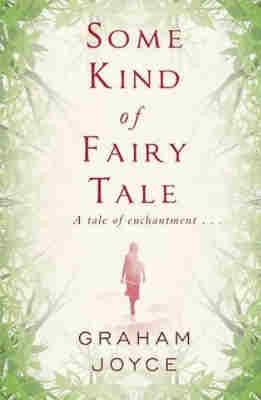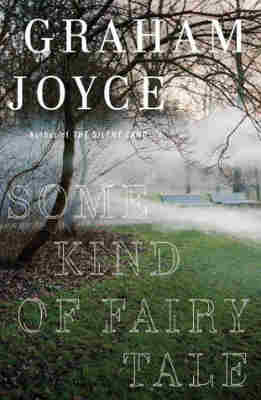Twenty years ago, after a fearsome falling-out with her besotted boyfriend, teenager Tara Martin went into the Outwoods to seek solace, and gather her thoughts in this special spot. She could hardly have picked a more beguiling backdrop for a vanishing act if she’d tried.
“The Outwoods was one of the last remaining pockets of ancient forest from which Charnwood took its name. It nestled at the spot where the three counties […] almost touched, and seemed neither to belong to nor take its character from any of them. It was an eerie place, swinging between sunlight and damp, flaring light and shadow; a venue of twisted trees, its volcanic slopes of ash and granite ruptured by mysterious outcropping crags of the very oldest rocks in Britain.”
When it emerges that Tara isn’t for coming back, suspicion immediately falls upon her supposed sweetheart, but Richie maintains his innocence to the hilt. Desperate to close the case, however, the police are dogged in their determination that Richie did it—whatever they think “it” is—pursuing him to the point that his close friendship with the whole of the Martin family, most especially his best pal Peter, becomes too painful to sustain.
Twenty years later, the world has moved on—for everyone except Richie, that is, whose loss has ruled if not outright ruined his life. So when Tara turns up on her folks’ doorstep, aged nary a day and bearing a tall tale about fairies instead of an actual reason for her protracted absence, it’s a shock to the system to say the least. Nobody knows what to think… not even her shrink.
“Clearly the narrative has been constructed to make sense of some overwhelming experience—but at the moment we have no clues as to what the experience might have been. Until we are able to locate any organic foundation for the amnesia and confabulation we will proceed with an psychological investigation underpinned by an understanding of the needs of the confabulator.”
Presented as journal entries composed for potential publication at a later date, Dr. Underwood’s occasional perspective serves several purposes in Some Kind of Fairy Tale. In the first, his sessions with “TM” function as a neat and natural way to tease out this two-pronged parable, because rather than frontloading the fiction with two worlds’ worth of exposition, the author best known for Memoirs of a Master Forger threads Tara’s metaphor-laden vacation to fairyland through the entirety of a more practical framing narrative, concerned in the main with the real world repercussions of her return. In addition to generating meaningful momentum, this approach instigates a sense of tension that the novel is never again absent, as one can only wonder what happens next, and what, in the interim, has been withheld.
Not to mention why. Nor, crucially, by whom. Because from an early stage—in point of fact, from the first page—we’re warned, though not actually informed, that “everything depends on who is telling the story. It always does,” and in Some Kind of Fairy Tale, there are no easy answers.

Which is not to say the narrative is unsatisfying. On the contrary, Graham Joyce’s habit of refusing obvious conclusions is one of his latest’s greatest successes. By stopping just short of solving all the novel’s possible problems, the author invites us to read between the lines… to unpick the almighty puzzle that is Tara’s mysterious disappearance. In that respect Some Kind of Fairy Tale comes together wonderfully, presuming you’re prepared to do a little of the lifting yourself.
Ultimately, Some Kind of Fairy Tale‘s stock in trade is this discomfiting sense of uncertainty, threatening and ever-present, so it’s fitting that both the form and the content of Underwood’s aforementioned interludes work to compound our conception. As a man of science, of fact rather than fantasy, his quest is to systematically discredit Tara’s increasingly unlikely account of the twenty years she’s short. The effect of his scepticism, then, is to balance out her belief, thus the reader can’t take anything on trust from anyone—least of all the novel’s narrator, whomsoever he, or she, may be.
It’s a terrific touch, and perhaps the most satisfying aspect of the entire novel. Graham Joyce’s hypnotic new novel has much more going for it than the slow burn of its seductive structure, though. On the sentence level, say, Some Kind of Fairy Tale seems simple—indeed, it makes for a few evenings’ easy reading—yet the prose boasts an ominous undercurrent: a suggestion, made ever so softly, that there’s more to the tale (and its telling) than we’re aware.
“You have no idea […] None of you. There is a veil to this world, thin as smoke, and it draws back occasionally and when it does we can see incredible things. Incredible things.”
This patiently paced novel is a pleasure in terms of character, too. Richie is a classic case of arrested development, all bad habits and tortured optimism, meanwhile Peter’s mature, and mostly level-headed. How these old friends relate to one another as after two decades as enemies is immediately engaging, and uncannily convincing; as are Tara’s tragicomic struggles to get to grips with the modern world she’s returned to. Last, and perhaps least, as diverting as his perspective is, Peter’s moody but well-meaning son Jack has surprisingly little impact on the narrative, however even his chapters offer a certain sideways insight into some of the novel’s most perplexing events.
In sum, Some Kind of Fairy Tale is fantastically formed, complete with a gently portentous premise, a marvellous cast of characters, and a narrative as smart and self-reflexive as it is at first old-fashioned. It’s a little slow in the going, I suppose, and its magic, its mystery, is essentially ineffable, but open your imagination for a moment and you’re sure to fall under its spell as well. Enigmatic and intellectual, yes, yet readily accessible and massively satisfying, Joyce’s latest is a joy.
Niall Alexander reads and writes about all things weird and wonderful for Tor.com, Strange Horizons and The Science Fiction Foundation. His blog is The Speculative Scotsman, and sometimes he tweets about books, too.










